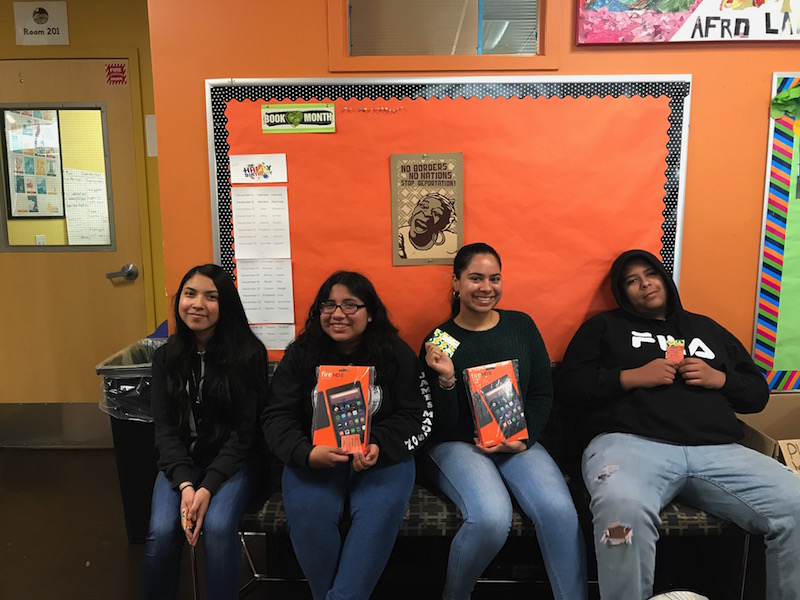
Ensuring students have met A-G course requirements so they can apply to UC and CSU schools is nothing new at ARISE High School. Now in its 13th year, making sure all students are on a college-bound track and have access to college was one of the foundational pieces of the school.
“A-G has always been a requirement and has guided a lot of the decisions we have made around structure,” said Trevor Gardner, ARISE’s director of teaching and learning. “Our ARISE graduation requirements are above and beyond A-G. For example, all students take two dual enrollment courses, as well as some community involvement pieces, and a 12th grade portfolio defense we call the “Warrior Intellectual Defense.”
ARISE students are also required to take a year of ethnic studies; so while A-G requirements include two years of social studies, ARISE’s requirements go beyond that as well.
The challenges don’t stop there for ARISE students, who Gardner said are about 90 percent English Language Learners (either long-term or redesignated EL students) and, despite bringing so much brilliance and cultural capital to their classrooms, often arrive at the school grade levels behind in math and literacy.
ARISE is also a Linked Learning school, which is proven to increase graduation rates, reduce dropout rates, and better prepare students for post-secondary success. ARISE’s pathway is Public and Community Health for the People, which maintains the social justice bent the school was founded on while also focusing on health and medicine, areas in which students expressed interest in studying. Seniors engage in internships, and sequence of multi-layered courses that increase in rigor as a student progresses to the next grade.
Students at Linked Learning schools can pursue multiple pathways, including a career pathway that doesn’t require a college degree, which adds a complication for meeting A-G requirements.
“The stance we continue to take is even if students are choosing a different pathway that doesn’t require them going to a four-year university right after high school, we want them to be prepared for that and have that choice,” Gardner said. “It’s a real challenge when a student comes to us and says I don’t plan on going to college, I have something else in my future. It’s tricky but we hold the line: we want you to have that opportunity to pursue higher education whenever you may be ready to choose that path.”
Gardner said every year ARISE staff are figuring out ways to build in more academic supports for the most struggling students. Often by the 10th grade it’s evident that these students are not on track to graduate meeting A-G requirements. But they also worry about how to connect with students who would benefit from enrichment programs and need to be pushed more academically.
“It’s fundamental and also one of our biggest challenges: to maintain a level of rigor that prepares students for work that’s expected of them at the university,” Gardner said. “Meeting students where they’re at when they come in academically in the 9th grade, and getting them ready and prepared for college and to become agents of change in their communities. It drives everything we do.”
Gardner said that if you walk into an ARISE classroom, you won’t see students hunched over a textbook during a dry lecture, being asked to turn to page 39.
“You’ll see a culturally-relevant canon in the humanities classes where students see themselves reflected in the curriculum,” Gardner said. “We also say that every ARISE teacher is a literacy teacher, even in a math class. We know the level of literacy needed for a university is high and students often need to make up multiple years in their four years at ARISE. That infuses everything we do.”
